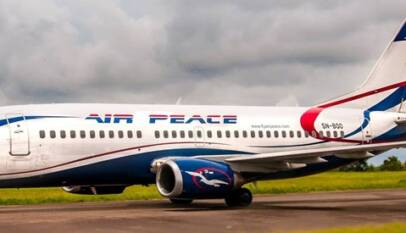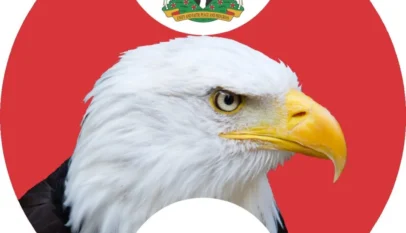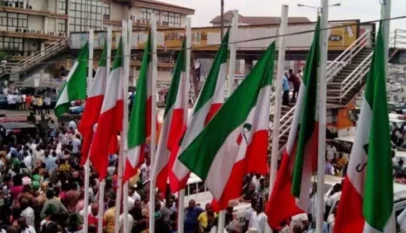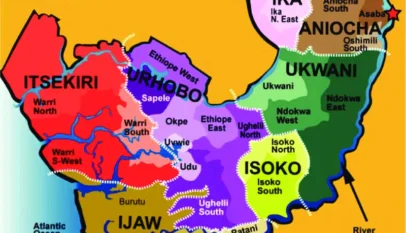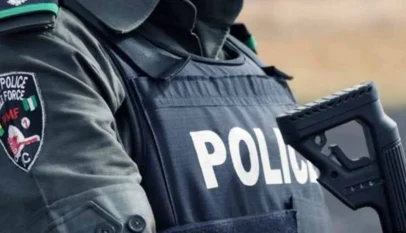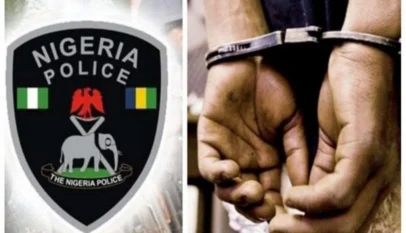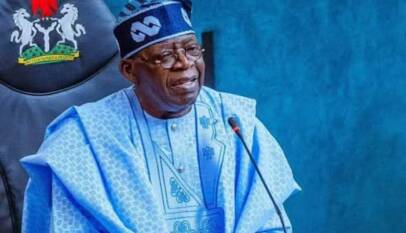
By Oghenekevwe Kofi
Allen Ifechukwu Onyema, the billionaire CEO of Air Peace, was once hailed as a Nigerian icon—a man who built the country’s largest airline and embodied success in the face of adversity. But beneath his polished image lies an alleged international web of fraud, money laundering, and financial scandal.
In a tale that takes us from the glitzy boardrooms of Lagos to the U.S. courts, Onyema’s story has become one of international intrigue, shedding light on the inner workings of Nigeria’s elite money-laundering racket.
Allen Onyeama’s Soaring Success:
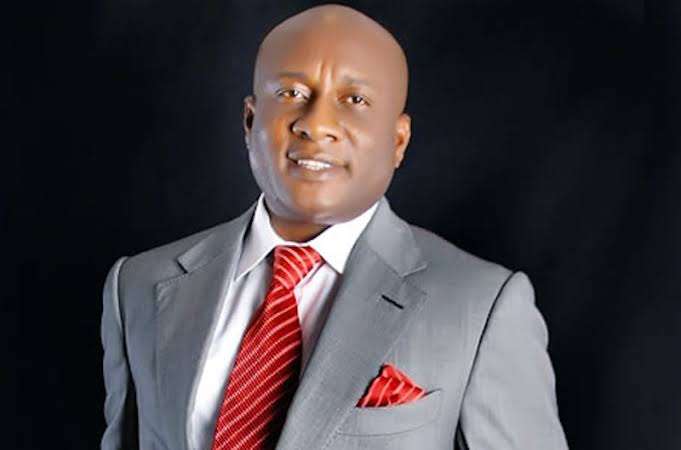
File Photo: Air Peace CEO, Allen Onyema
Onyema’s rise was meteoric. His airline, Air Peace, founded in 2013, grew to dominate Nigeria’s aviation industry, flying routes across the continent and internationally within a few years after its launch. He garnered widespread accolades for his humanitarian efforts, including the 2019 rescue mission where he flew stranded Nigerians back home from widespread xenophobic violence in South Africa.
But while Air Peace soared through Nigerian skies, U.S. investigators uncovered intricate dark dealings behind Onyema’s success—a labyrinth of fraudulent dealings that spanned continents and involved millions of dollars in illicit transactions.
The U.S. Fraud Allegations: A Crash Landing
In November 2019, the U.S. Department of Justice filed an indictment that shook Onyema’s world. He was accused of orchestrating a massive fraud and money laundering scheme, funnelling over $20 million from Nigeria to the U.S. under false pretences. According to prosecutors, his partner-in-crime was Ejiroghene Eghagha, the airline’s chief of administration and finance. Together, they allegedly used a company called Springfield Aviation to move fraudulent funds disguised as payments for aircraft parts.
Springfield Aviation, according to the U.S. authorities, was a front. Though the funds are purported to buy planes, it never owned any. The appraisals submitted to secure loans from banks were allegedly fabricated by a company that didn’t even exist. Even worse, Eghagha reportedly directed a manager at Springfield to sign these false documents, going so far as to use the manager’s identity to further the scheme.
Once the fraudulent funds reached the U.S., Onyema allegedly laundered over $16 million by transferring it between various accounts, creating a complex financial maze that investigators were determined to unravel.
But as dramatic as these allegations were, they only scratched the surface of the story. The fraud didn’t just involve fake aeroplane deals – it exposed an entire system of financial exploitation in Nigeria that went back years, or even decades.
The Nigerian Money Laundering Racket: Dollar Arbitrage and Exploitation
To understand Onyema’s case fully, one must dig into Nigeria’s ongoing currency crisis, which began after oil prices plummeted in 2014, triggering an economic downturn. By the time President Muhammadu Buhari came into office in 2015, foreign exchange (forex) was increasingly scarce. The Central Bank of Nigeria (CBN) rationed dollars, making it harder for businesses and individuals to get access to forex at official rates.
However, this scarcity created a lucrative black market for dollars, where prices soared far beyond official rates. This crisis was an opportunity for Nigerian elites, like most other crises that deplete the country’s reserves and impoverish its citizens. Those with connections, like Onyema, allegedly used their influence to access subsidized dollars from the CBN at the official rate. But instead of using these dollars for legitimate business purposes—such as purchasing aeroplanes for Air Peace—Onyema reportedly funnelled the money back into Nigeria’s black market (bureau de change), where the currency’s value was nearly double the official rate. By selling the dollars at the inflated black-market rate, he could effectively double his money in a classic arbitrage scheme.
This wasn’t a one-man operation. It was an open secret that many of Nigeria’s wealthiest individuals and businesses exploited the dollar scarcity, turning huge profits while fuelling corruption and financial instability. The elite reaped the rewards of a system that enabled greed, while the country’s broader economy suffered. These kinds of schemes often go unpunished, allowed to flourish under the radar of Nigerian law enforcement. But Onyema’s misstep was taking his operation onto foreign soil, where U.S. authorities were less forgiving.
The Cover-Up: An Attempt to Escape the Crash
When Onyema and Eghagha learned in 2019 that they were under investigation in the U.S. for bank fraud, the cover-up began. They allegedly directed Springfield Aviation’s manager to sign a key business contract without dating it. The plan was to later present the contract as evidence that their dealings were legitimate. In October 2019, as U.S. authorities ramped up their investigation, Onyema allegedly instructed his attorneys to present the forged contract, now falsely dated May 5, 2016, in a bid to freeze the investigation and unlock his bank accounts. It was a bold move—and one that would come back to haunt him.
In a new twist, U.S. prosecutors issued a superseding indictment on October 8, 2024, adding charges of obstruction of justice and conspiracy to obstruct justice. These new charges deepened the drama, portraying Onyema and Eghagha not only as financial schemers but as men willing to go to any lengths to derail an international investigation.
A Web of Corruption and Impunity
The Allen Onyema case highlights a much larger issue in Nigeria – how systemic corruption and financial manipulation have become entrenched among the country’s elite. The dollar racket that Onyema allegedly exploited was just one of many schemes that enriched a select few while eroding trust in Nigerian institutions. As forex became scarcer and the Nigerian naira depreciated, elites exploited this crisis for personal gain, using political and business connections to secure dollars and selling them at exorbitant rates on the black market.
These financial games were not just about making quick profits – they funded political campaigns, fuelled corruption, and exacerbated economic inequality. While the country’s poor struggled with rising inflation, a select group of insiders was reaping massive, often illicit, rewards.
Justice, or Another Unfinished Story?
Onyema’s case has cast a searing spotlight on this world of high-stakes financial crimes, but it also raises important questions: Will Onyema and others like him ever be held accountable? In Nigeria, such crimes often go unpunished, swept under the rug by a system that shields the powerful. However, foreign jurisdictions, like the United States, have proven less willing to overlook such offences.
Both Onyema and Eghagha have pleaded not guilty, and under U.S. law, they remain innocent until proven otherwise. It will be up to the U.S. government to prove their guilt beyond a reasonable doubt. But for now, Onyema continues to walk free in Nigeria, where his fate remains uncertain.
The Descent or the Final Ascent?
Allen Onyema’s story is far from over. Whether he emerges as a symbol of resilience, having beaten the odds yet again, or whether he faces a crash landing in the U.S. courts, remains to be seen. This fiasco has exposed the dark underbelly of Nigeria’s currency crisis, the greed that drove it, the flamboyance of its key players and the high-stakes games the elite play.
This is not just Onyema’s story—it’s a story of systemic exploitation and corruption that continues to plague Nigeria. For now, Onyema may have evaded punishment at home, but his ultimate fate may rest in the hands of U.S. prosecutors, where the final verdict could bring this dramatic saga to an end—or take it to even more unexpected heights.

